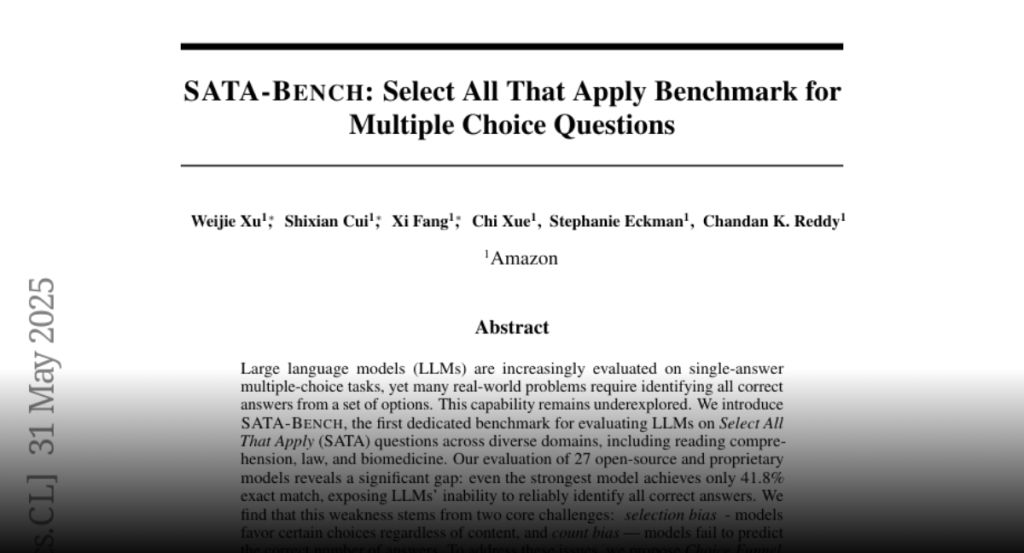SATA-BENCH evaluates LLMs on multi-answer questions, revealing selections biases and proposing Choice Funnel to improve accuracy and reduce costs in multi-answer reasoning tasks.
Large language models (LLMs) are increasingly evaluated on single-answer
multiple-choice tasks, yet many real-world problems require identifying all
correct answers from a set of options. This capability remains underexplored.
We introduce SATA-BENCH, the first dedicated benchmark for evaluating LLMs on
Select All That Apply (SATA) questions across diverse domains, including
reading comprehension, law, and biomedicine. Our evaluation of 27 open-source
and proprietary models reveals a significant gap: even the strongest model
achieves only 41.8% exact match, exposing LLMs’ inability to reliably identify
all correct answers. We find that this weakness stems from two core challenges:
selection bias – models favor certain choices regardless of content, and count
bias – models fail to predict the correct number of answers. To address these
issues, we propose Choice Funnel, a decoding strategy that combines token
debiasing with adaptive thresholding to guide models toward complete and
accurate selections. Choice Funnel achieves up to 29% higher exact match than
competitive baselines while reducing inference cost by over 64%. Our findings
expose fundamental limitations in current LLMs and introduce a new framework
for diagnosing and improving multi-answer reasoning. We release SATA-BENCH and
Choice Funnel to promote LLM development for robust decision-making in
realistic, multi-answer applications.

